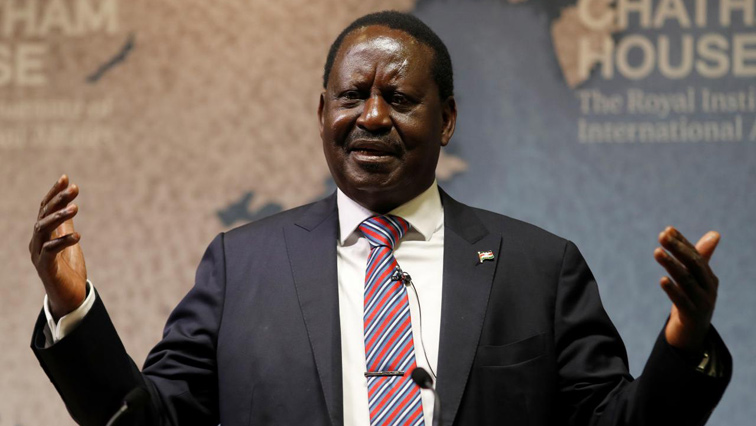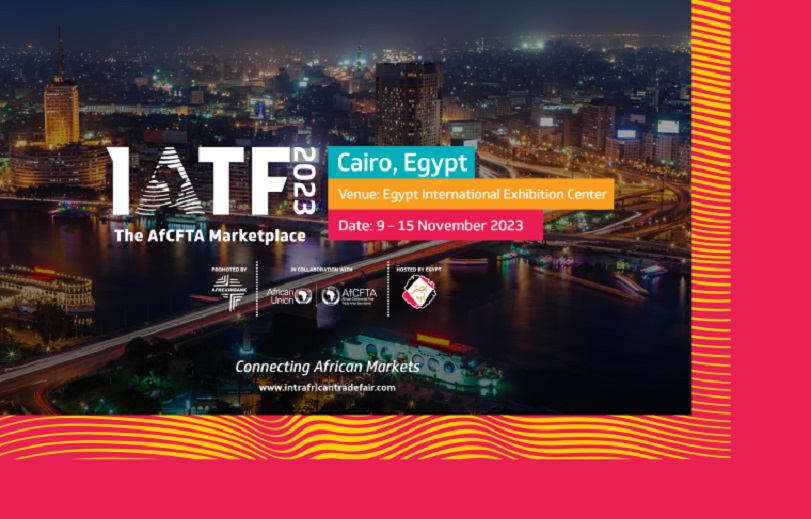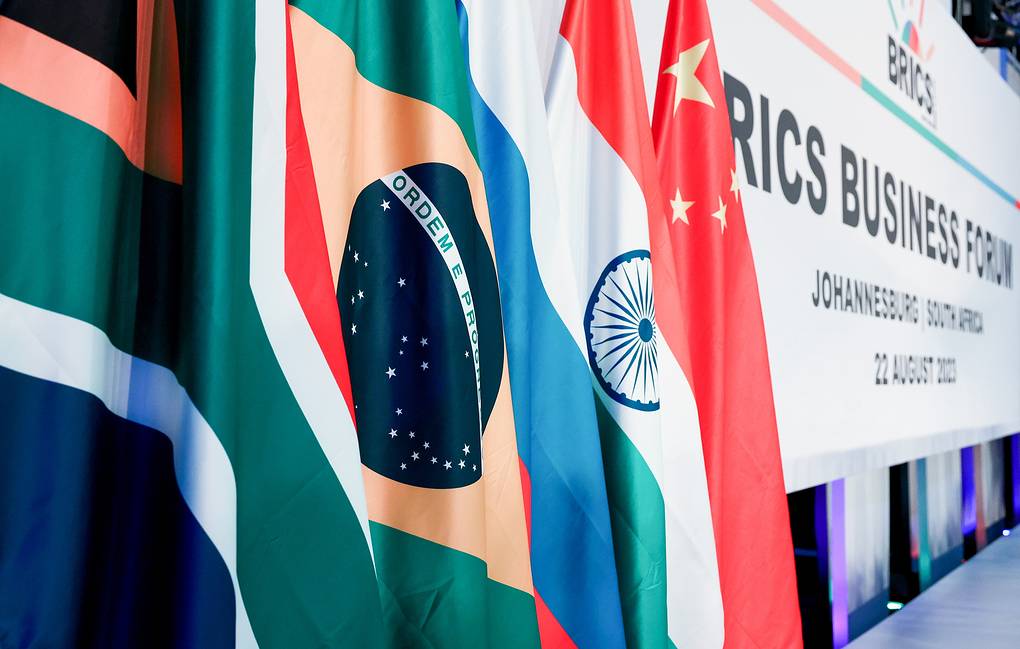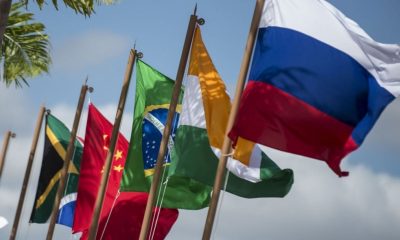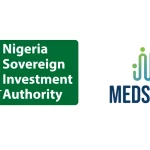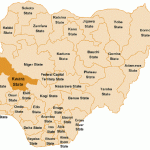Feature/OPED
African Union Establishes Vaccine Manufacturing Facility: Challenges and Perspectives
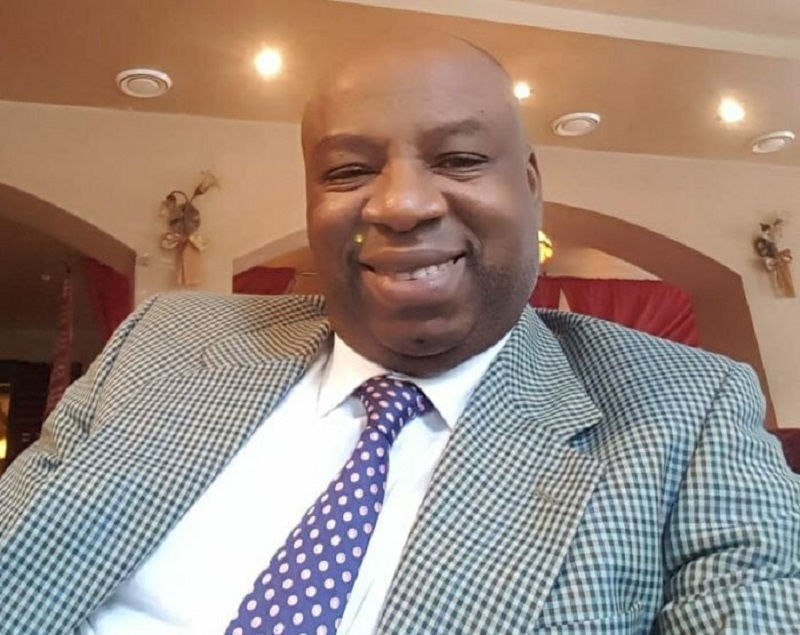
By Professor Maurice Okoli
The African Union, an organization uniting African states, has made a legitimate decision to establish a vaccine manufacturing facility inside Africa, despite the fierce initial resistance by the World Trade Organization (WTO). The Covid-19 pandemic, the critical period when widespread coronavirus endangered human lives, has rightly taught Africans lessons, especially the heightened discrimination in the supply and distribution of vaccines by Western and industrialized nations we referred to as the Global North.
Until today, Africans vividly remember their sentimental feelings characterized by sudden lockdown and social distancing. In the African context, most cultural group activities were suspended, and small traders and vendors shut behind doors without any revenue-earning employment. In short, the complex and unbearable adverse effects on small- and medium-scale businesses are still felt even as coronavirus has subsided, but not completely disappeared from society.
As part of stringent measures to contain future disease outbreaks and public health risks, for effective future responses, the Africa CDC is developing sustainable mechanisms such as local vaccine manufacturing facilities, strongly supported by African leaders and the African Union. The Africa CDC is mandated to strengthen Africa’s public health institutions’ capacity and capability and seek local and foreign partnerships to ensure a healthy Africa.
According to the Africa CDC report, about a quarter of Africa’s 1.4 billion population will be fully vaccinated against Covid-19 by the end of 2022. In the report, the target for Africa remains to vaccinate 70% of the population. That goal, however, was set by the World Health Organization (WHO) for the overall population. But due to delays in international vaccine deliveries, Africa largely lags behind the rest of the world.
Since Africa has no production facility, the vaccinations have been made mainly with Johnson & Johnson’s vaccine (42%), followed by Pfizer (22%), AstraZeneca (17%), China’s Sinopharm (15%) and Sinovac (7%). Currently, just more than 800 million doses of vaccines have been administered in Africa, or 80% of the total received.
Russia’s much-heralded vaccine diplomacy is neither vaccine diplomacy nor development assistance. Instead, it is a form of mercantilism, an effort by the state and its proxy to develop, market and sell Russian products abroad.
In February 2021, Russia offered the African Union 300 million doses of Sputnik V with financing packages for countries wanting to purchase them. Yet at $10 per dose for two doses of vaccine, Sputnik V was offered on terms making it significantly more expensive than the vaccine by AstraZeneca ($3 per dose), Pfizer ($6,75 per dose) and Johnson and Johnson ($10 for one dose-short vaccine).
Considering the cost implications, AU brokered with the French pharmacy brand Johnson and Johnson instead of Russian Sputnik V. Potential customers have also taken note of logistical challenges that plagued Russian officials’ vaccine efforts, combined with delivery delays, encouraged many desperate countries to look elsewhere during the crisis. Given these shortcomings, it is not all that surprising that Moscow’s strategic attempt to use vaccine diplomacy to showcase itself as a partner for Africa has not been very successful as envisioned.
At the Global Financing Summit held in Paris on 22-23 June 2023, South African President Cyril Ramaphosa emphasized the importance of vaccine manufacturing inside the continent; the further focus should be on developing actual vaccine R&D capacity, which must necessarily lead to health products. And this also requires substantial investment and a long-term commitment from external players and financial institutions. Notwithstanding those previous disappointments from external partners, at least African leaders have been rallying together to ensure that no effort is spared in facilitating and supporting the building of large-scale vaccine manufacturing capacity in the continent. The African Vaccine Manufacturing Summit held in April 2021 was an encouraging start, a collective effort to change the status quo.
Under the aegis of the African Union, the Africa CDC and the African Medicines Agency (AMA) are coordinating and cooperating to swiftly address health issues, including vaccine manufacturing and distribution in the continent. According to African Union’s report in mid-June 2023, the African Medicines Agency (AMA), a newly launched continental regulatory body for medical products, is concretely set to start its work, with its headquarters in Kigali, Rwanda. Rwanda was selected to host the agency during a 2022 AU Executive Council meeting in Lusaka, Zambia.
AMA is a specialized agency of the African Union (AU) intended to facilitate the harmonization of medical products regulation throughout the AU to improve access to quality, safe and productive medical products on the continent. Many AU member states, including Rwanda, ratified the treaty establishing the continental agency and deposited the legal instrument of ratification to the AU Commission. On June 10, for instance, Rwanda and the AU signed the host country agreement, an important step marking the start of the work by AMA.
The Health Minister Ruwanda Dr Sabin Nsanzimana emphasized the institution’s key role in building confidence in the quality of health products on the continent, promoting cooperation and mutual recognition in regulatory decisions and facilitating the movement of health products. The agency is tipped to enhance the capacity of state parties to regulate medical products and to improve Africa’s access to quality, safe, and productive medical products.
As we know, Rwanda’s government has already provided space for the agency’s operations. The following steps include getting leaders for the institution and establishing facilities like laboratories, et cetera. With much praise, AMA will contribute to medicine production on the continent and allow it to move across Africa.
In terms of bilateral relations, China and Africa will always be a community of a shared future. At least, its policies are strategically focused on addressing sustainable development. China has proved, over the years, in many aspects of dealing with Africa. Results are seen especially with all kinds of infrastructure built these years. And, of course, Chinese firms are actively engaging in joint vaccine production in Africa with local firms, helping countries, following their wishes, to realize localized vaccine production. According to reports, Chinese firms have started localized output in Egypt and signed cooperative agreements with Morocco and Algeria.
The headquarters building was completed after an agreement between the AU and China on the Africa CDC HQ’s building project in July 2020. it is now becoming one of the best-equipped centres for disease control in Africa, allowing the Africa CDC to play its role as the technical institution coordinating disease prevention, surveillance and power in the continent in partnership with the national public health institutes and ministries of Member States.
By combating Covid-19, China and Africa withstand severe challenges, helping each other and fighting side by side to defeat the pandemic through solidarity and cooperation. In essence, China is participating in the African Vaccine Manufacturing Partnership (AVMP) launched by the African Union in April 2021. This Continental Vaccine Manufacturing Vision is “to ensure that Africa has timely access to vaccines to protect public health security by establishing a sustainable vaccine development and manufacturing ecosystem in Africa.”
It is also a splendid testimony of China’s steadfast support for Africa. “Together, we have written a splendid chapter of mutual assistance amidst complex changes and set a shining example for building a new type of international relations,” Chinese President Xi Jinping said in one of his speeches, emphasizing the principles of China’s Africa policy as pursuing the greater good and shared interests.
While discussing this vital question, it is critical to strengthen the capacity and to prepare for future pandemics based on the sentiments, and latest first-hand experiences during the Covid-19 period. The fear and the uncertainties engulfed human lives, the overall impact on the economic performance across Africa. Worth to note here that African leaders have passionately called on G7 leaders to increase investments in research and innovation for vaccines, new drugs and diagnostics to help reach the goals the World Health Organization set.
More interesting – apparently, recent arguments among health experts have offered enough grounds for finding at least modest but sustainable health solutions. We can now praise the Africa CDC and AU for their joint support; that alone is one giant leap for establishing vaccine development and manufacturing inside Africa.
The key focus of this new agreement is forging new and strengthened partnerships to reach the millions who still lack access to vaccines and other essential health services. We have already acknowledged that the global Covid-19 pandemic and climate change have, to some degree, jeopardized the health, security and livelihoods of people across Africa.
Patrick Tippoo, Executive Director at the Africa Vaccine Manufacturing Initiative, argues that vaccine manufacturing is a complex, time-consuming exercise requiring considerable commitment and financial and technical resources. He further underscores that the capital investment required is significant and equally essential in a long-term future view for Africa’s health system and population. Therefore, African leaders need to rally together to ensure that no effort is spared in facilitating and supporting the building of large-scale vaccine manufacturing capacity on the continent.
The African Union could contribute in the following ways: (i) the mobilization of resources and creating enabling environments for help to be unlocked and discharged, as vaccine production is capital intensive and requires access to innovative funding streams over 10-20 years.
(ii) Accelerate efforts to create streamlined regulatory processes for speedier accreditation of vaccine manufacturing facilities and licensing products to ensure that vaccines can be available in the fastest time possible.
(iii) Increase access and accelerate the uptake of life-saving vaccines across the continent, including immunization, providing technical and learning assistance.
(iv) Invest in skills development programs specifically geared to creating a workforce skilled in vaccine development and manufacturing know-how.
In a similar argument, Tom Page wrote in his report, published in CNN news and newsletter, that Africa might need its own central medicines agency. The main reason is that when Africa needs medicines, the continent often looks abroad. That report, sourcing the World Economic Forum, said African nations consume about 25% of vaccines produced globally but import nearly 99% of their supply, according to the African Union Development Agency. For packaged medicines, only 36% of demand is produced locally, and just 3% is supplied by regional trade, according to the World Economic Forum.
The world acknowledges that there are people who can pay and there are people that can’t pay. It is not a sustainable model to deny people who can’t pay because they need money. Therefore, the biggest challenge is making supplies more affordable to the population. The essence of localizing production inside the continent is affordability, but there are still enormous challenges. Partly the reason why African governments should adopt a system approach and outline how to tackle health issues as fast as possible.
Today, Africa comprises 54 sovereign countries, most of which have borders that were drawn during the era of European colonialism. In the 21st century, improved stability and economic reforms have attracted a considerable great increase in foreign investment in many African nations. We hope that the Africa Continental Free Trade Area (AfCFTA) will make cross-border trade in the pharmaceutical space easier. And there is also a lot more on the policy front from the World Trade Organization.
If vaccine manufacturing takes off with the expected speed, distribution without cut-throat customs tariffs (taxes) and through borderless countries to reach different destinations, it will ultimately ensure better healthcare delivery. At long last, the vehicle for Africa’s economic transformation has visibly arrived in the single continental market – AfCFTA and it will be a tremendous premise for achieving the health aspects of the African Union’s Agenda 2063.
By Professor Maurice Okoli is a fellow at the Institute for African Studies and the Institute of World Economy and International Relations, Russian Academy of Sciences. He is also a fellow at the North-Eastern Federal University of Russia.
Feature/OPED
AU Must Reform into an Institution Africa Needs

By Mike Omuodo
From an online post, a commentator asked an intriguing question: “If the African Union (AU) cannot create a single currency, a unified military, or a common passport, then what exactly is this union about?”.
The comment section went wild, with some commentators saying that AU no longer serves the interest of the African people, but rather the interests of the West and individual nations with greedy interests in Africa’s resources. Some even said jokingly that it should be renamed “Western Union”.
But seriously, how has a country like France managed to maintain an economic leverage over 14 African states through its CFA Franc system, yet the continent is unable to create its own single currency regime? Why does the continent seem to be comfortable with global powers establishing their military bases throughout its territories yet doesn’t seem interested in establishing its own unified military? Why does the idea of an open borders freak out our leaders, driving them to hide under sovereignty?
These questions interrogate AU’s relevance in the ensuing geopolitics. No doubt, the AU is still relevant as it still speaks on behalf of Africa on global platforms as a symbol of the continent’s unity. But the unease surrounding it is justified because symbolism is no longer enough.
In a continent grappling with persistent conflict, economic fragmentation, and democratic reversals, institutions are judged not by their presence, but by their impact.
From the chat, and several other discussion groups on social media, most Africans are unhappy with the performance of the African Union so far. To many, the organization is out of touch with reality and they are now calling for an immediate reset.
To them, AU is a club of cabals, whose main achievements have been safeguarding fellow felons.
One commentator said, “AU’s main job is to congratulate dictators who kill their citizens to retain power through rigged elections.” Another said, “AU is a bunch of atrophied rulers dancing on the graves of their citizens, looting resources from their people to stash in foreign countries.”
These views may sound harsh, but are a good measure of how people perceive the organization across the continent.
Blurring vision
The African Union, which was established in July 2002 to succeed the OAU, was born out of an ambitious vision of uniting the continent toward self-reliance by driving economic Integration, enhancing peace and security, prompting good governance and, representing the continent on the global stage – following the end of colonialism.
Over time, however, the gap between this vision and the reality on the ground has widened. AU appears helpless to address the growing conflicts across the continent – from unrelenting coups to shambolic elections to external aggression.
This chronic weakness has slowly eroded public confidence in the organization and as such, AU is being seen as a forum for speeches rather than solutions – just as one commentator puts it, “AU has turned into a farce talk shop that cannot back or bite.”
Call for a new body
The general feeling on the ground is that AU is stagnant and has nothing much to show for the 60+ years of its existence (from the times of OAU). It’s also viewed as toothless and subservient to the whims of its ‘masters’. Some commentators even called for its dissolution and the formation of a new body that would serve the interests of the continent and its people.
This sounds like a no-confidence vote. To regain favour and remain a force for continental good, AU must undertake critical reforms, enhance accountability, and show political courage as a matter of urgency. Without these, it may endure in form while fading in substance.
The question is not whether Africa needs the AU, but whether the AU is willing and ready to become the institution Africa needs – one that is bold enough to initiate a daring move towards a common market, a single currency, a unified military, and a common passport regime. It is possible!
Mr Omuodo is a pan-African Public Relations and Communications expert based in Nairobi, Kenya. He can be reached on [email protected]
Feature/OPED
Recapitalisation: Silent Layoffs, Infrastructure Deficit Threat to $1trn Economy

By Blaise Udunze
The Central Bank of Nigeria’s recapitalisation exercise, which is scheduled for a March 31, 2026, deadline, has continued to reignite optimism across financial markets and is designed to build stronger, more resilient banks capable of financing a $1 trillion economy. With the ongoing exercise, the industry has been witnessing bank valuations rising, investors are enthusiastic, and balance sheets are swelling. However, beneath these encouraging headline numbers, unbeknownst to many, or perhaps some troubling aspects that the industry players have chosen not to talk about, are the human cost of consolidation and the infrastructure deficit.
Recapitalisation often leads to mergers and acquisitions. Mergers, in turn, almost always lead to job rationalisation. In Nigeria’s case, this process is unfolding against an already fragile labour structure in the banking industry, one where casualisation has become the dominant employment model.
One alarming fact in the Nigerian banking sector is the age-old workforce structure raised by the Association of Senior Staff of Banks, Insurance and Financial Institutions (ASSBIFI), which says that an estimated 60 percent of operational bank workers today are contract staff. This reality raises profound questions about the sustainability of Nigeria’s banking reforms and the credibility of its economic ambitions.
A $1 trillion economy cannot be built on insecure labour, shrinking institutional knowledge, and an overstretched financial workforce.
Recapitalisation and the Hidden Merger Trap
History is instructive. Referencing Nigeria’s 2004-2005 banking consolidation exercise, which reduced the number of banks from 89 to 25, and no doubt, it produced larger institutions, while it also triggered widespread job losses, branch closures, and a wave of outsourcing that permanently altered employment relations in the sector. The current recapitalisation push risks repeating that cycle, only this time within a far more complex economic environment marked by inflation, currency volatility, and rising unemployment.
Mergers promise efficiency, but efficiency often comes at the expense of people. Speaking of this, duplicate roles are eliminated, technology replaces frontline staff, and non-core functions are outsourced. The troubling part of it is that this is already a system reliant on contract labour; mergers could accelerate workforce instability, turning banks into balance-sheet-heavy institutions with shallow human capital depth.
ASSBIFI’s warning is therefore not a labour agitation; it is a macroeconomic red flag.
Casualisation as Structural Weakness, Not a Cost Strategy
It has been postulated by proponents of job casualisation that it is a cost-control mechanism necessary for competitiveness. Contrary to this argument, evidence increasingly shows that it is a false economy. In reaction to this, ASSBIFI President Olusoji Oluwole, who kicked against this structural weakness, asserted that excessive reliance on contract workers undermines job security, suppresses wages, limits access to benefits and blocks career progression while affirming that over time, this erodes morale, loyalty, and productivity.
More troubling are the systemic risks. Casualisation creates operational vulnerabilities, higher fraud exposure, weaker compliance culture, and lower institutional memory.
One of the banking regulators, the Nigeria Deposit Insurance Corporation (NDIC), has not desisted from repeatedly cautioning that excessive outsourcing and short-term staffing models increase security risks within banks. On the negative implications, when employees feel disposable, ethical commitment weakens, and reputational risk grows.
Banking is not a factory floor. It is a trust business. And trust does not thrive in insecurity.
Inside Outsourcing Web of Conflict of Interest
Beyond cost efficiency, Nigeria’s casualisation crisis is also fuelled by a deeper governance problem, conflicts of interest embedded within the outsourcing ecosystem.
In many cases, bank chief executives and executive directors are reported to own, control, or have beneficial interests in outsourcing companies that provide services to their own banks. Invariably, it is the same firms supplying contract staff, cleaners, security personnel, call-centre agents, and even IT support. Structurally, this arrangement allows senior executives to profit directly from the same outsourcing model that strips workers of job security and benefits.
The incentive is clear. Outsourcing enables banks to maintain lean payrolls, bypass strict labour protections associated with permanent employment, and reduce long-term obligations such as pensions and healthcare. But when those designing outsourcing strategies are also financially benefiting from them, the line between efficiency and exploitation disappears.
This model entrenches casualisation not as a temporary adjustment tool, but as a permanent business strategy, one that externalises social costs while internalising private gains.
Exploitation and Its Systemic Consequences
The human impact is severe because the contract staff employed through executive-linked outsourcing firms often face poor working conditions, low wages, limited or no health insurance, and zero job security, which is demotivating. Many perform the same functions as permanent staff but without benefits, voice, or career prospects.
ASSBIFI has warned that prolonged exposure to such insecurity leads to psychological stress, declining morale, and reduced productive life years. Studies on Nigeria’s banking sector confirm that casualisation weakens employee commitment and heightens anxiety, conditions that directly undermine service quality and operational integrity.
From a systemic standpoint, exploitation feeds fragility. High staff turnover erodes institutional memory. Disengaged workers weaken internal controls. Meanwhile, this should be a sector where trust, confidentiality, and compliance are paramount; this is a dangerous trade-off if it must be acknowledged for what it is.
Why Workforce Numbers Tell a Deeper Story
It is in record that as of 2025, Nigeria’s banking sector employs an estimated 90,500 workers, up from roughly 80,000 in 2021. The top five banks today, such as Zenith, Access Holdings, UBA, GTCO, and Stanbic IBTC, account for about 39,900 employees, reflecting moderate growth driven by digital expansion and regional operations.
At face value, truly, these figures suggest resilience. But when viewed alongside the 60 percent casualisation rate, they paint a different picture, revealing that employment growth is without employment quality. A workforce dominated by contract staff lacks the stability required to support long-term credit expansion, infrastructure financing, and industrial transformation.
This matters because banks are expected to be the engine room of Nigeria’s $1 trillion economy, funding roads, power plants, refineries, manufacturing hubs, and digital infrastructure. Weak labour foundations will eventually translate into weak execution capacity.
Nigeria’s Infrastructure Financing Contradiction
Nigeria’s infrastructure deficit is estimated in the hundreds of billions of dollars. Power, transport, housing, and broadband require long-term financing structures, sophisticated risk management, and deep sectoral expertise. Yet recapitalisation-induced mergers often lead to talent loss in precisely these areas.
As banks consolidate, specialist teams are downsized, project finance units are merged, and experienced professionals exit the system, either voluntarily or through redundancy. Casual staff, by design, are rarely trained for complex, long-term infrastructure deals. The result is a contradiction, revealing that larger banks have bigger capital bases but thinner technical capacity.
Without deliberate workforce protection and skills development, recapitalisation may produce banks that are too big to fail, but too hollow to build.
South Africa Offers a Useful Contrast
South Africa offers a revealing counterpoint. As of 2025, the country’s “big five” banks, such as Standard Bank, FNB, ABSA, Nedbank, and Capitec, employ approximately 136,600 workers within South Africa and about 184,000 globally. This is significantly higher than Nigeria’s banking workforce, despite South Africa having a smaller population.
More importantly, South African banks maintain a far higher proportion of permanent staff. While outsourcing exists, core banking operations remain firmly institutionalized compared to the Nigerian banking system. For this reason, South Africa’s career progression pathways are clearer, labour regulations are more robustly enforced, and unions play a more structured role in workforce negotiations.
The result is evident in outcomes. South Africa’s top six banks are collectively valued at over $70 billion, with Standard Bank alone boasting a market capitalisation of approximately $30 billion and total assets nearing $192 billion. Nigeria’s top 10 banks, by contrast, held combined assets of about $142 billion as of early 2025, even with a much larger population and economy, and its 13 listed banks reached a combined market capitalisation of about N17 trillion ($11.76 billion at an exchange rate of N1,445) in 2026.
Though this gap is not just about capital. It is about institutional depth, workforce stability, and governance maturity.
Bigger Valuations, But a Weaker Foundations?
Nigeria’s 13 listed banks reached a combined market capitalisation of about N17 trillion in 2026. It is no surprise, as it is buoyed by investor anticipation of recapitalisation and higher capital thresholds. Yet market value does not automatically translate into economic impact. Without parallel investment in people, systems, and long-term skills, valuation gains remain fragile.
South Africa’s experience shows that strong banks are built not only on capital adequacy, but on human capital adequacy. Skilled, secure workers are better risk managers, better innovators, and better custodians of public trust.
Labour Law and its Regulatory Blind Spots
ASSBIFI’s call for a review of Nigeria’s Labour Act is timely, and this is because the current framework lags modern employment realities, particularly in sectors like banking, where technology and outsourcing have blurred traditional employment lines. Regulatory silence has effectively legitimised casualisation as a default model rather than an exception.
The Central Bank of Nigeria cannot afford to treat workforce issues as outside its mandate. Prudential stability is inseparable from labour stability. Regulators must begin to view excessive casualisation as a risk factor, just like liquidity mismatches or weak capital quality.
Recapitalisation Without Inclusion Is Incomplete
If recapitalisation is to succeed, it must be inclusive; therefore, the industry must witness the enforcement of career path frameworks for contract staff, limiting the proportion of outsourced core banking roles, and aligning capital reforms with employment protection. It also means recognising that labour insecurity ultimately feeds systemic fragility.
South Africa’s banking sector did not avoid consolidation, but it managed it alongside workforce safeguards and institutional continuity. Nigeria must do the same or risk building banks that look strong on paper but crack under economic pressure.
True Measure of Reform
Judging by the past reform in 2004-2005, it has shown that Nigeria’s banking recapitalisation will be judged not by the size of balance sheets, but by the resilience of the institutions it produces. As part of the recapitalisation target for more resilient banks capable of financing a $1 trillion economy, it demands banks that can think long-term, absorb shocks, finance infrastructure, and uphold trust. None of these goals is compatible with a workforce trapped in perpetual insecurity.
Casualisation is no longer a labour issue; it is a national economic risk. If mergers proceed without deliberate workforce stabilisation, Nigeria may end up with fewer banks, fewer jobs, weaker institutions, and a slower path to prosperity.
The lesson from South Africa is clear, as it shows that strong banks are built by strong people. Until Nigeria’s banking reforms fully embrace that truth and the missing pieces are addressed, recapitalisation will remain an unfinished project. and the $1 trillion economy, an elusive promise.
Blaise, a journalist and PR professional, writes from Lagos, can be reached via: [email protected]
Feature/OPED
In Nigeria… One Day Monkey Go Go Market
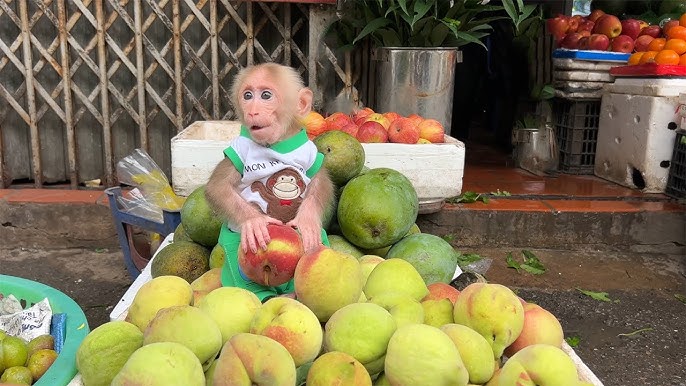
By Prince Charles Dickson PhD
In Nigeria, the road has become a stage where power performs its most absurd theatre. The siren—once a tool of emergency—now plays the soundtrack of ego. The convoys, longer than a bride’s procession, louder than a market quarrel, move through our streets like small invading armies. And every time that blaring, violent sound slices through the air, a simple truth echoes behind it: one day monkey go go market… and e no go return.
Because power, especially Nigerian power, has a short memory. And even shorter patience.
These leaders who move as though the sun itself must pause when they pass were once ordinary Nigerians. They once queued at bus stops, once waited under the rain for taxis, once navigated potholed streets with the same caution as every other citizen trying not to die by negligence. But somewhere between election and inauguration, ambition and arrogance, something snapped. Their feet left the ground. Their humanity blurred. And their ears, now accustomed to sirens; forgot how silence feels.
The bizarre culture of convoys in Nigeria has metastasized into something theatrical, violent, and deeply offensive. What began as protocol has become performance. Sirens scream not just to clear the road, but to announce hierarchy. Vehicles speed not just to meet schedules but to demonstrate superiority. And the citizens, the people in whose name this power is supposedly held, scatter like startled chickens. Or worse, end up dead under tires that never brake.
The irony is painful. The same leaders who demand absolute obedience from citizens once walked among those same citizens unnoticed. Once upon a time they lived without outriders, without black-tinted SUVs, without pickup vans carrying heavily armed security men who point guns at commuters as though Lagos traffic is a battlefield. They were once people. Now they behave like a species apart.
But the road remembers. The people remember. And power always forgets that it is a tenant, never a landlord.
Escorts in Nigeria don’t just move with urgency; they move with intimidation. They shove, push, threaten, and roar through roads where ordinary Nigerians are merely trying to survive the day. The siren becomes a weapon, the convoy a declaration of dominance. The message is clear: “Your life must move aside. My importance is passing.”
In what country should this be normal?
Even emergency vehicles; ambulances carrying dying patients, fire trucks racing to burning buildings, sometimes cannot pass because a government official’s convoy has occupied the road with the entitlement of royalty.
This isn’t governance; it’s theater of the absurd.
And the casualties are not metaphorical. Nigerians have died—pregnant women hit by convoys, okada riders knocked off the road, children flung away like debris. Drivers in these convoys behave like warhorses let loose, sworn not to slow down regardless of what or who is ahead.
But who will hold them accountable? Who dares question power that sees questions as disrespect and disrespect as rebellion?
The institutions meant to regulate these excesses are the same institutions that created them. Protocol offices treat speed like divinity. Security details mistake aggression for duty. Schedules are treated as holy commandments. Every meeting becomes urgent. Every movement becomes life-or-death. Every road must clear.
But the truth sits quietly behind all this noise: no meeting is that important, no leader is that indispensable, and no road should require blood to make way.
Somewhere, a child grows up believing public office means public intimidation. A young man sees the behavior of convoys and dreams not of service but of dominance. A young woman imagines that leadership means never waiting in traffic like the rest of society. And so, the cycle of arrogance reproduces itself. A country becomes a laboratory where entitlement multiplies.
In Nigeria, the convoy culture reveals a deeper sickness: a leadership class that has disconnected from the lived realities of the people they claim to govern.
When did proximity to power become justification for violence?
When did schedules become more sacred than lives?
When did we normalize leaders who move like emperors, not elected representatives?
But more importantly: how do these leaders forget so quickly where they came from?
Many of them grew up in the same chaos their convoys now worsen. They once asked why leaders were insensitive. Now they have inherited the same insensitivity and advanced it.
The convoy is more than metal and noise. It is a metaphor. It illustrates how Nigerian governance often operates: pushing the people aside, demanding unquestioned obedience, prioritizing position over responsibility.
And yet, the proverb whispers:
One day monkey go go market… e no go return.
Not because we wish harm on anyone, but because history has its own logic. Power that forgets compassion eventually forgets itself. Leadership that drives recklessly, morally, politically, and literally—will one day crash against the boundaries of public patience.
This metaphor is a quiet mirror for every leader who believes their current status is divine permanence. One day, the sirens will go silent. The tinted windows will roll down. The outriders will be reassigned. The road will no longer clear itself. Reality will return like harmattan dust.
And then the question will confront them plainly:
When your power fades, what remains of your humanity?
The tragedy of Nigeria’s convoy culture is that it makes leadership look like tyranny and renders citizens powerless in their own country. It fosters a climate where ordinary people live in perpetual startle. It deepens distrust. It fuels resentment. It reinforces the perception that leadership is designed to intimidate rather than serve.
And what does it say about us as a nation that we accept this?
We accept the absurdity because we assume it cannot be overturned. We accept arrogance because we assume it is the price of power. We step aside because we assume there is no alternative.
But nations are not built on assumptions. They are built on accountability.
The temporary nature of political power should humble leaders, not inflate them. Four or eight years or whatever time they spend clinging to office cannot compare to the lifetime they will spend as private citizens once the convoys disappear.
When the noise stops, will they walk among us head high or with their face hidden?
When the sirens lose their voice, will they find their own?
What if true leadership was measured not by how loudly you move through society but by how gently you walk among the people?
Imagine a Nigeria where power travels quietly. Where convoys move with the dignity of service, not the violence of entitlement. Where leaders move with humility, not hysteria. Where the streets do not tremble at the approach of authority. Where citizens do not shrink to the roadside, waiting to survive the thunder of tinted SUVs.
It is possible. It is necessary. It begins with leaders remembering that every journey through Nigeria’s roads is a reminder of their accountability, not their dominion.
Because one day, and it will come—monkey go go market.
The convoy will stop.
The siren will fade.
The power will dissolve into yesterday.
And the road will ask the only question that matters:
While you passed through, did you honor the people… or terrorize them?
History will remember the answer.
And so will we—May Nigeria win!
-

 Feature/OPED6 years ago
Feature/OPED6 years agoDavos was Different this year
-
Travel/Tourism9 years ago
Lagos Seals Western Lodge Hotel In Ikorodu
-

 Showbiz3 years ago
Showbiz3 years agoEstranged Lover Releases Videos of Empress Njamah Bathing
-

 Banking8 years ago
Banking8 years agoSort Codes of GTBank Branches in Nigeria
-

 Economy3 years ago
Economy3 years agoSubsidy Removal: CNG at N130 Per Litre Cheaper Than Petrol—IPMAN
-

 Banking3 years ago
Banking3 years agoSort Codes of UBA Branches in Nigeria
-

 Banking3 years ago
Banking3 years agoFirst Bank Announces Planned Downtime
-

 Sports3 years ago
Sports3 years agoHighest Paid Nigerian Footballer – How Much Do Nigerian Footballers Earn



